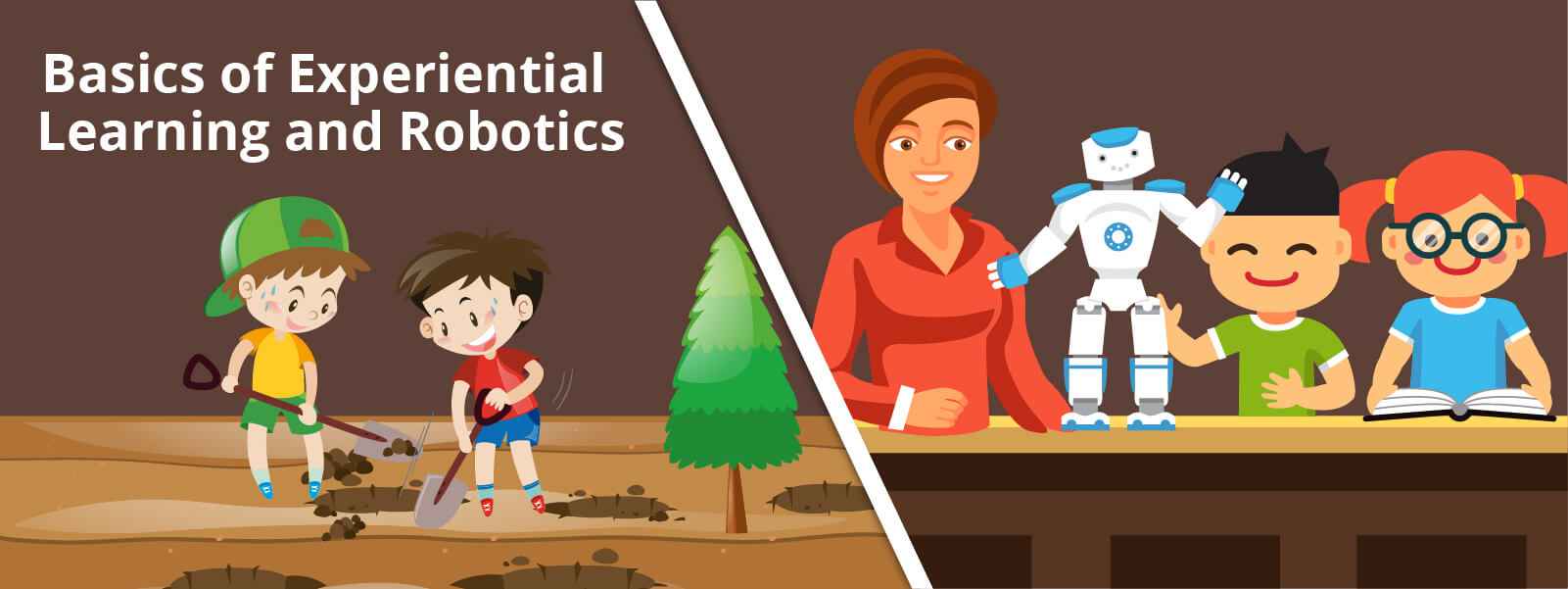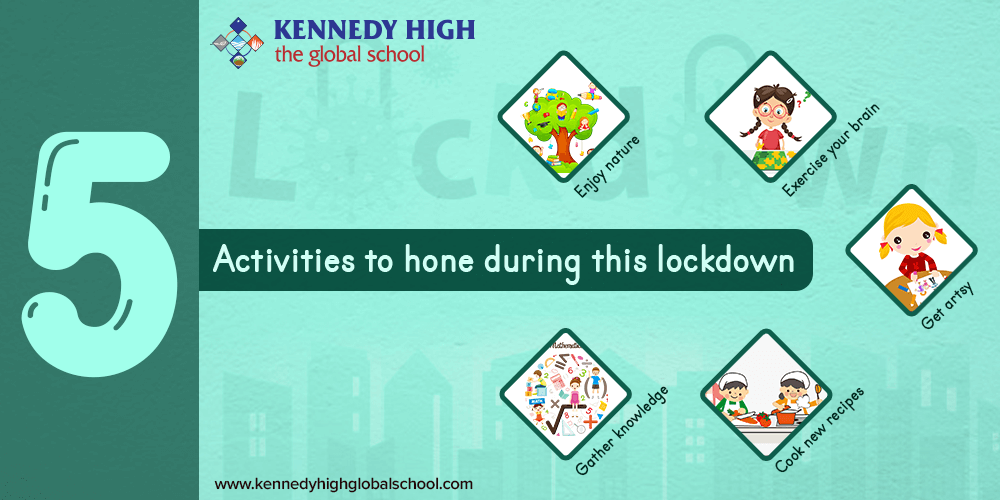
Basics of Experiential Learning and Robotics
We all know the power of our top 5 senses. Eyes are one of the most eminent senses among all and we logically trust them more comparatively. Let’s take an example, do you remember any science experiment like rubbing a pen on your hairs and then attracting the pieces of paper to it and wonders the magic of science. Isn’t this kind of experiments always remain in our mind while we forget most of the theoretical logics practically.
So, have you ever wonder why we remember experimental logics more clearly than theoretical ones. Let me guess, is it because we have personally performed that tasks and analyzed it more precisely, hence we remember it accurately. This is a simple example of experiential learning. Let’s explore more about it.
Experiential Learning
Experiential Learning can be simply defined as learning through experience or learning through doing. This is one of the most effective ways of learning and getting a clear picture of any practical knowledge. Experiential learning has changed the way of learning in schools now and considered as a boon for academic industries. It engages students in critical thinking, analyzing the fact, problem-solving and decision making in the surrounding which is relevant to them.
With the implementations of several technologies in the academic sector, experiential learning is one of the best forms of learning and analyzing the real concepts. Experiential learning offers opportunities for debriefing and consolidation of ideas through personal experience, its reflection, feedback which are applied to new situations. Students act as an active participant in the educational process and not just a listener.
Though this learning can occur anywhere, it is prominent to recognize by young students. Destinations like a zoo, a national park or a science library and museum, where learning can be adapted well because of the availability of subjects of the experiment. Other than a traditional classroom setting, experiential learning is the learning with first-hand experiences.
Experiential learning was first explored by John Dewey and Jean Piaget, among others while the theory states that knowledge forms by the combination of grasping experience and transforming it. The theory concept is based on four main elements which operate in a continuous cycle:
- Experience:The step involves trying new things, get stuck in and then step out of your comfort zone.
- Reflect:It needs the reflection of what you have done and learned from experiences. You now check for what went right/wrong and what needs to be improved.
- Conceptualize:Here, it’s time for planning and strategizing to perform better.
- Experiment:The step is about the implementation of new ideas to know what worked best.
Benefits in Schools
- Accelerates learning by the replacement of ‘learning by rote’ to ‘learning by doing’. It encourages critical thinking and more problem-solving skills to students.
- It allows students to take data and concepts and makes them ‘real’ by applying them to real-time experiments, which result in understanding the concept more easily.
- With experiential learning, students can analyze their mistakes and their reflection more closely. This will help them to understand the next action-point and do the solutions.
- Personally performed experiments lead to learning attitude with more concentration and hard work, which parallelly improve their knowledge and skills.
- It helps to bridge the gap between theoretical and practical knowledge by performing the tasks personally.
- Learning through experiments allows students to work effectively with new plans, knowledge, which turn them to learn real-life leadership skills.
Robotics
Implementation of new technologies in academics has improved the overall quality of young aspiring minds. Among the latest technologies, Robotics is one of the most fascinating branches of science which deals with the designing, engineering, programming, testing, robot development, and human robots to make human activities easy and simple. It is growing rapidly with the involvement of Big Data and the IoT. Robotics is applicable in almost all industries and offers a great future to invest on.
Considering the above facts, it is important to involve Robotics in school courses and make our youngsters more considerable than others in the crowd. We at Kennedy School include Robotics for CBSE and CIE students to let them grasp more knowledge and take a big leap in terms of learning. Advance learning improves students’ overall skills and helps them to be more creative, more attentive and focused at the same time.
Benefits in Schools
- Robotics enforces to develop creativity and fun simultaneously. It allows students to perform some cool stuff, which they want to develop with fun.
- Hands-on learning activities enhance students’ concentration and attention levels with the involvement of physical activities.
- With the latest technologies like AI or Robotics, we ensure our students prepare for any kind of technological changes to adapt well.
- Helps to improve programming skills and challenging tasks, which transforms students with a never-give-up attitude.
- Robotics learning is full of fun and encourages students to involve more and implement new ideas.





Leave a Reply